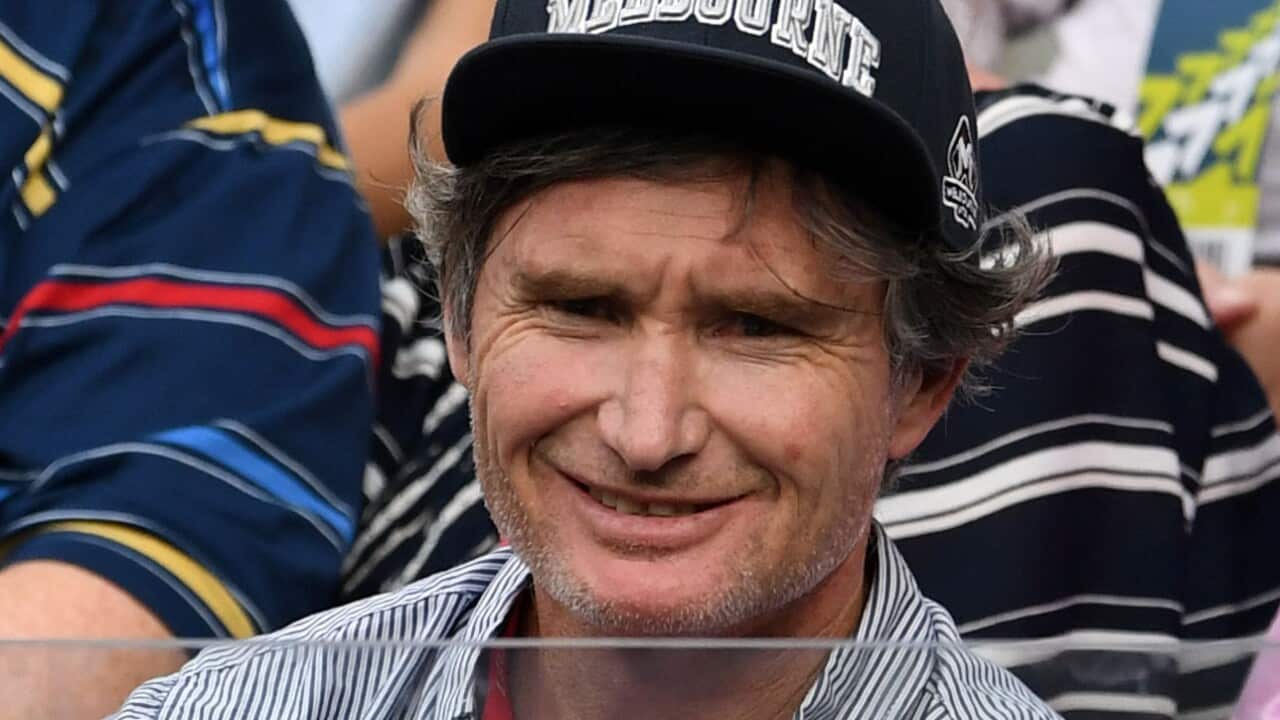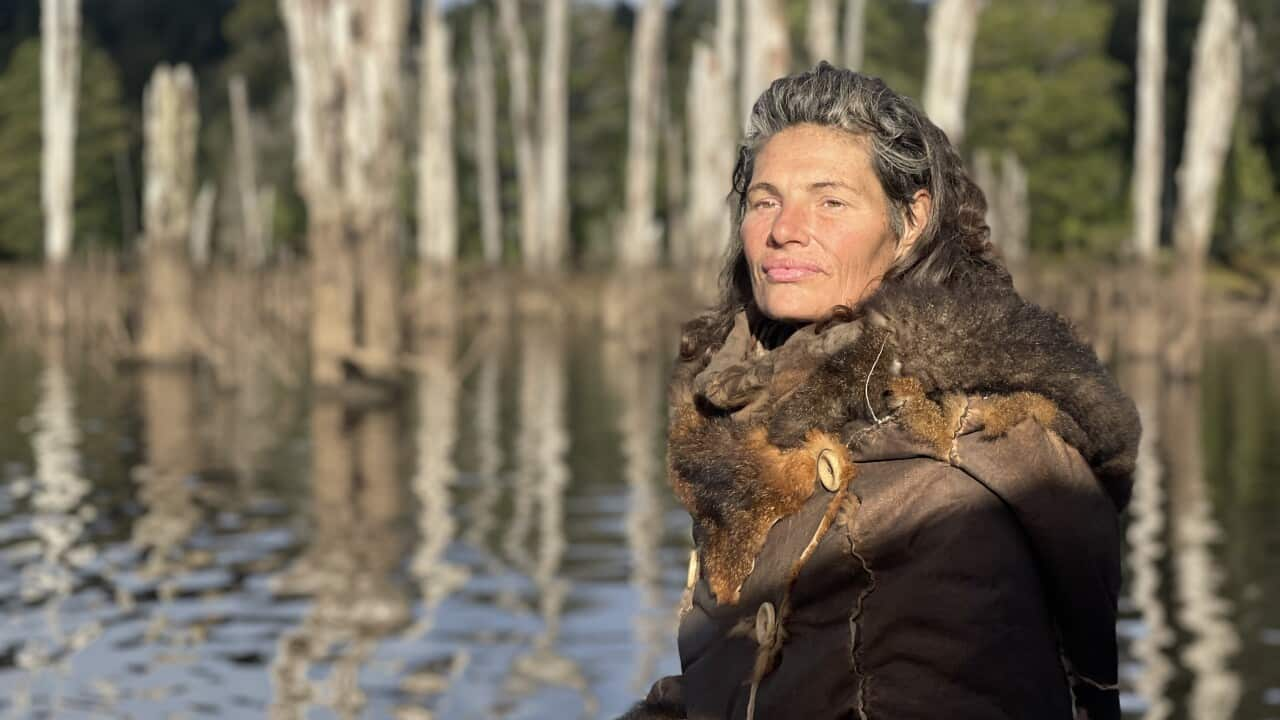Is escaping from reality helping or harming us? In this episode of Insight, we hear from Australians trying to find identity and liberation in escapism, and ask whether this is a good thing. Watch on .
Stream free On Demand

Escaping Reality
episode • Insight • News And Current Affairs • 51m
episode • Insight • News And Current Affairs • 51m
This article contains references to child abuse.
Everyone at some point tries to escape. It might be via the camaraderie of playing soccer, the creative expression of cooking or by soaring above the clouds as a pilot, enjoying a bird’s-eye view of the world.
But escapism isn’t always healthy. For me, it became a crutch — a way to escape the dissatisfaction with my life and the heartbreak of my past.
I wasn't seeking self-improvement or growth, simply looking for a way out — by any means necessary.
For 17 years, I lived in a place called Hamilton South, a humble housing commission estate in Newcastle, NSW, known locally as 'Lego Land'. It was a place filled with people seeking escape — often through substances. I thought that was how everyone coped.
The people there had been dealt harsh cards.
A man with cerebral palsy, smiling despite his struggles, would limp across the road to buy marijuana for pain relief. A woman, slumped over at a taxi rank at 7.30am, was numbing the grief of her son’s overdose with alcohol.
These were my neighbours, my community.

As a child, Tamara would create imaginary worlds and characters to escape from her reality. Source: Supplied
By the age of five, my earliest memories were already marred by fists, spit on my face and relentless yelling.
But in the confines of my room, I created a world of my own. I clutched my pencil and drew the characters of my dreams, crafting places I’d never seen. My little hands would work until they blistered.
Escape as a ritual
Drawing was my first escape — a refuge where my imagination shielded me from the chaos outside.
As a teenager, I found different escapes.
At 14, I tried marijuana with my best friends. For the first time, the incessant storm in my mind quietened. In those moments, watching The Blues Brothers, there were no worries.
Getting high became a ritual, a way to block out the hunger and the pain of being a kid with empty pockets and an emptier stomach.
At night, while my mother drowned herself in alcohol, I’d sneak pot into my room and smoke, retreating deeper into my cocoon.
I was so addicted that I smoked through pneumonia until my right lung nearly collapsed. The ambulance crew told me I wouldn’t have lasted another 12 hours.
Then came a darker descent. At 15, I was introduced to amphetamines. By my 16th birthday, I had progressed to smoking ice.
The next four years were a blur of addiction, with barely a month of sobriety.
Hitting rock bottom
At 20, life forced a reckoning. My mother was diagnosed with stage four lung cancer.
Despite our tumultuous relationship, I loved her deeply; we had a complicated bond shaped by shared trauma.
She hid her diagnosis until her illness became undeniable, fearing it would derail the progress I had started to make: getting clean, holding a stable job and finding my footing.
I relapsed after her death. At her funeral, I was high, burying my grief under the haze of drugs. For a year, I spiralled again.
One day, I hit rock bottom. At 45kg, living in a trashed housing commission flat, surrounded by garbage and despair, I snapped.
Something in me stirred — a faint but persistent voice whispering: "This cannot be life".
I realised no hero was coming to save me. If I wanted change, it had to start with me.
Fighting for life
I called my estranged father and begged for a couch to sleep on. With nothing but a garbage bag of clothes and a dead phone, I jumped a train to Sydney, determined to rewrite my story.
The fight for my life began there. I endured withdrawals in silence, started skateboarding every day, and eventually enrolled in TAFE.
By 22, I had landed a job in construction as a traffic controller. Directing massive trucks through chaotic construction sites gave me a sense of control and purpose. Finally, I had gained a sense of organisation and predictability that I had been missing.
I thrived on the challenge, pushing myself to excel.
Around this time, I fell in love. This wonderful man listened intently as I recounted my past, his eyes welling with tears. He believed in me and helped piece me back together.
But I chose work over our relationship, ending things to pursue my ambitions.
Over the next several years, I buried myself in work and study, earning qualifications, managing projects and chasing a relentless drive for success.
But work was simply another distraction from my emotions. And my success came at a cost.
Confronting the emptiness
When my beloved Nan passed away, followed by my father, the grief I had long suppressed resurfaced.
Losing them, especially without proper goodbyes, shattered me.
I took some time off work and, stripped of purpose, was forced to listen to my own thoughts and confront the emptiness within me.
That introspection led to a profound realisation: the void I was trying to fill couldn’t be satisfied by accolades or achievements.
It needed love, connection and acceptance.

Tamara says she has learned to not rely on emotional crutches and listen to her own thoughts. Source: Supplied
I went on a fishing trip with my uncle out at my dad's Country in Collarenebri in north-western NSW. I heard birds and saw flat red land as far as the eye could see.
It made me realise that I am a person outside of work with her own interests.
Today, I live a balanced life. I no longer try to work several jobs at once to feel productive while also studying at night school. I work one job with colleagues who make me laugh and remind me to savour life beyond work.
I'm also eight years clean and no longer drink alcohol.
My escape now is playing the PlayStation — immersing myself in matches with online friends. Through this form of escapism, I am much more connected, and I'm talking about how I'm feeling while being there for others as well.
But after a while, I switch off and embrace the life I’ve built.
I’m no millionaire or genius, but I am resilient, loved and whole.
I’ve become the hero I needed as a child, and that is the real achievement.
Readers seeking support can contact Lifeline crisis support on 13 11 14, Suicide Call Back Service on 1300 659 467 and Kids Helpline on 1800 55 1800 (for young people aged 5 to 25). More information is available at and .
Readers struggling with their use of alcohol and other substances can contact the National Alcohol and Other Drug Hotline on 1800 250 015 for free and confidential support 24 hours a day, 7 days a week. More information is available via .
And for more stories on sex, relationships, health, wealth, grief and more, head to hosted by Kumi Taguchi. Follow us on the , , , or wherever you get your podcasts.
LISTEN TO

Insightful: A new podcast from SBS Insight
SBS News
01:00





